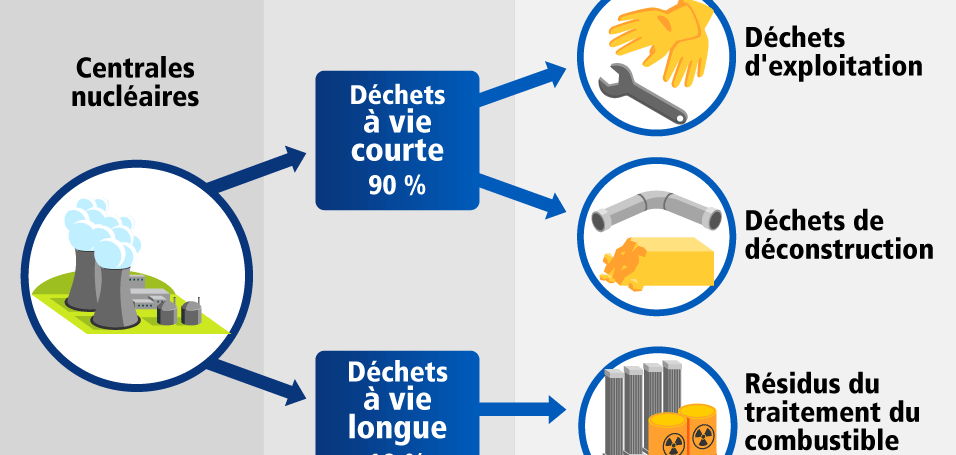
If nuclear power is a very good option for producing carbon-free energy, what to do next with the waste?
Nuclear activity generates large quantities of highly radioactive waste which need to be stored in safe places and under maximum security conditions for the long term. In fact, waste from spent fuel from nuclear power plants is high-level and long-lived waste. They remain extremely dangerous for hundreds of thousands of years. The only means currently used in order to guard against their radiotoxicity is geological confinement. Radioactive waste is buried in the ground for a very long period of time according to elaborate and specific procedures.
In France, the Nuclear Safety Authority is preparing a major plan for the management of the almost 2 million cubic meters of radioactive waste in the country. She urges, moreover, to act quickly. She recently declared: "Decisions will be necessary, in the short term, so that safe management channels are available for all types of radioactive waste in the next 15 to 20 years" . She does not hesitate to use a somewhat alarmist tone by adding: "that in the absence of a decision taken in the next five years, no management system would be operational in the next 20 years. The waste storage capacity needs will therefore not be met ”.
The storage site chosen by the public authorities is in the Meuse, more precisely in Bure. It is planned to place this waste 500 meters underground from 2035. As we can imagine, this project which will bear the name of Cigéo and whose cost is estimated at 25 billion euros, is the object of all criticism from many environmental organizations that do not want it. However, the millions of cubic meters of radioactive waste are indeed there and it is a question of being proactive in order to find the best solution because, as ASN concedes: “long-term storage cannot constitute a solution. definitive "
Posted on 2021-06-08 20:28








Comments